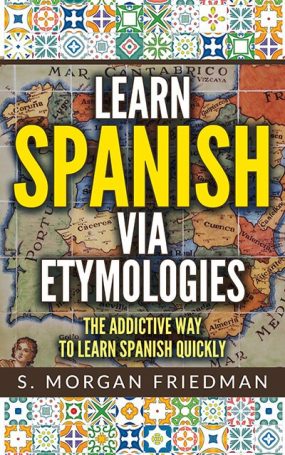The English for eager-to-fight, pugnacious, contains the -gn- pattern inside it: a give-away to the pattern that -gn- words in Latin turned the -gn- into a -ñ- in Spanish yet remained the same into English.
Therefore, pugnacious maps perfectly to puñal, the Spanish for… “dagger.” It makes sense that “dagger” and “eager to fight” come from the same root, after all. And that root, in this case, is the Latin pugnare, meaning, “to fight.”
 The common Spanish word obra, for “a work” (in the sense of, “a work of art”) or “something done with effort” sounds pretty random at first. But if you think about it…
The common Spanish word obra, for “a work” (in the sense of, “a work of art”) or “something done with effort” sounds pretty random at first. But if you think about it…
